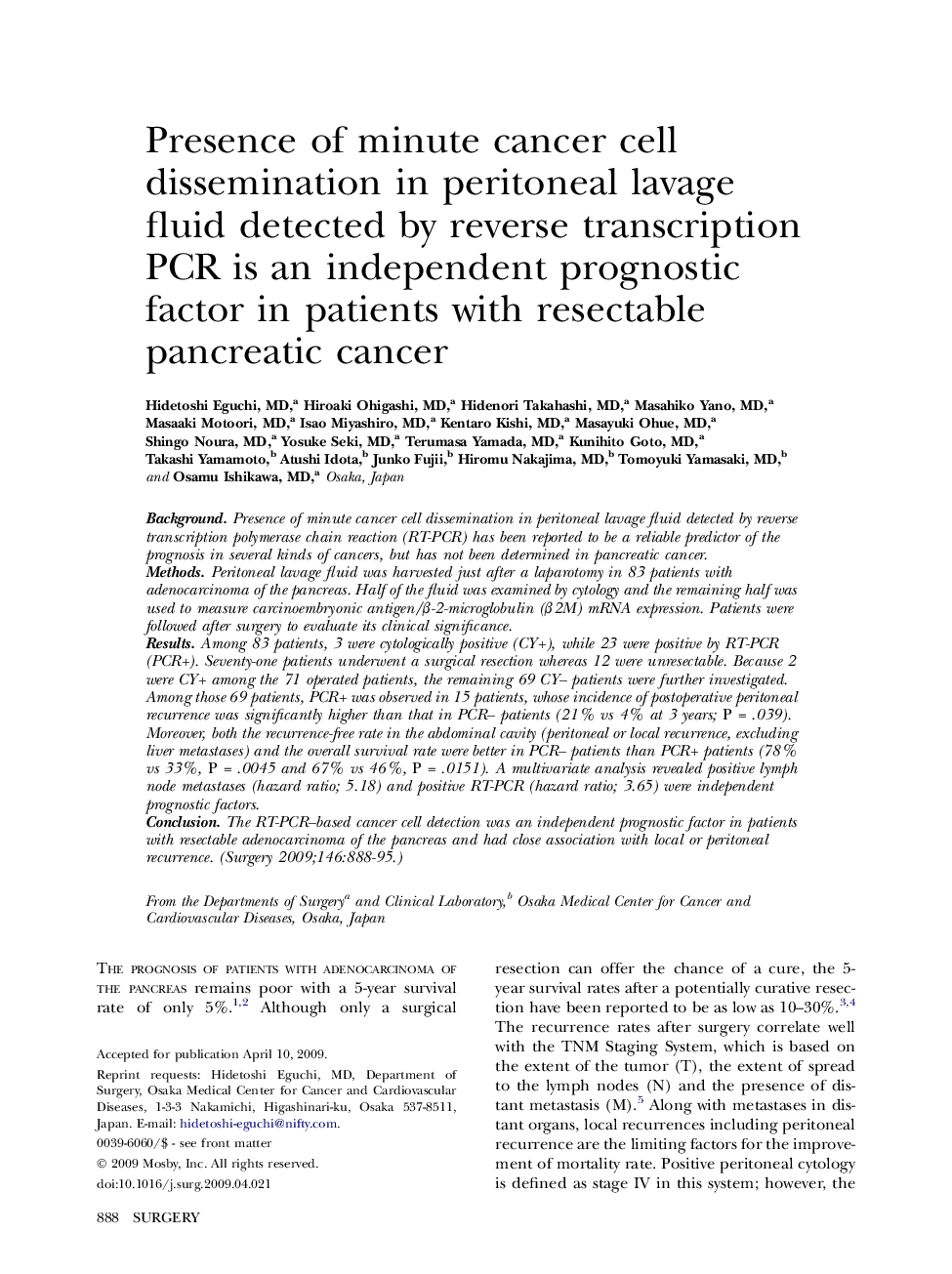| Article ID | Journal | Published Year | Pages | File Type |
|---|---|---|---|---|
| 4309421 | Surgery | 2009 | 8 Pages |
BackgroundPresence of minute cancer cell dissemination in peritoneal lavage fluid detected by reverse transcription polymerase chain reaction (RT-PCR) has been reported to be a reliable predictor of the prognosis in several kinds of cancers, but has not been determined in pancreatic cancer.MethodsPeritoneal lavage fluid was harvested just after a laparotomy in 83 patients with adenocarcinoma of the pancreas. Half of the fluid was examined by cytology and the remaining half was used to measure carcinoembryonic antigen/β-2-microglobulin (β2M) mRNA expression. Patients were followed after surgery to evaluate its clinical significance.ResultsAmong 83 patients, 3 were cytologically positive (CY+), while 23 were positive by RT-PCR (PCR+). Seventy-one patients underwent a surgical resection whereas 12 were unresectable. Because 2 were CY+ among the 71 operated patients, the remaining 69 CY– patients were further investigated. Among those 69 patients, PCR+ was observed in 15 patients, whose incidence of postoperative peritoneal recurrence was significantly higher than that in PCR– patients (21% vs 4% at 3 years; P = .039). Moreover, both the recurrence-free rate in the abdominal cavity (peritoneal or local recurrence, excluding liver metastases) and the overall survival rate were better in PCR– patients than PCR+ patients (78% vs 33%, P = .0045 and 67% vs 46%, P = .0151). A multivariate analysis revealed positive lymph node metastases (hazard ratio; 5.18) and positive RT-PCR (hazard ratio; 3.65) were independent prognostic factors.ConclusionThe RT-PCR–based cancer cell detection was an independent prognostic factor in patients with resectable adenocarcinoma of the pancreas and had close association with local or peritoneal recurrence.
